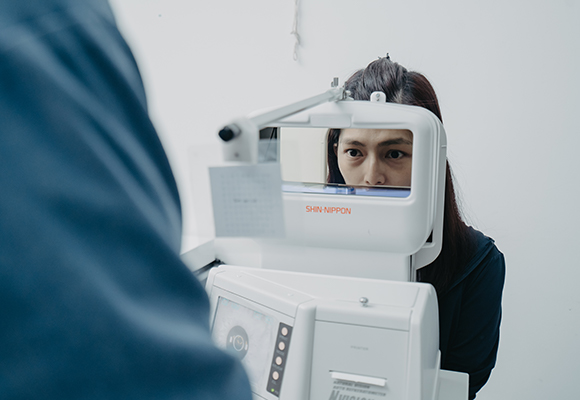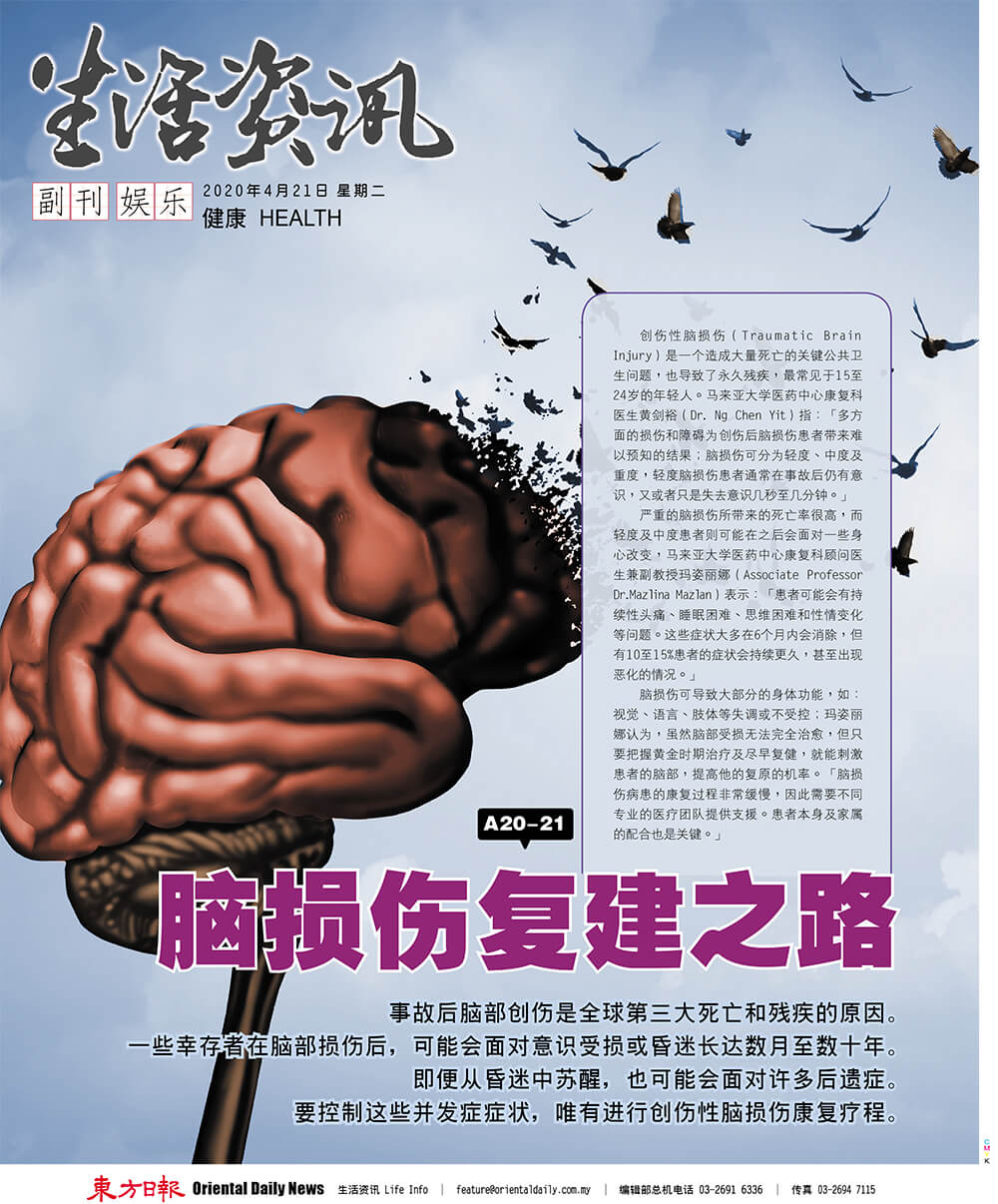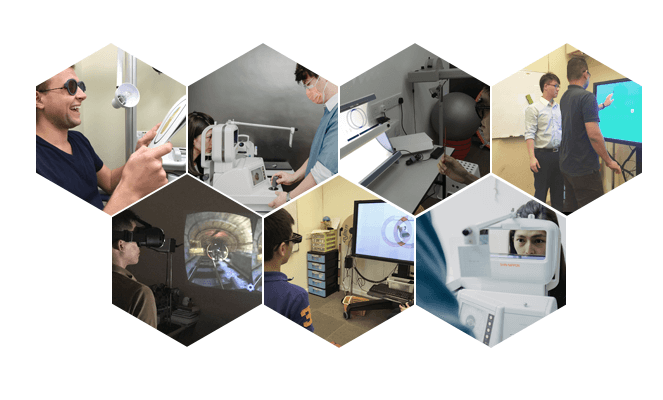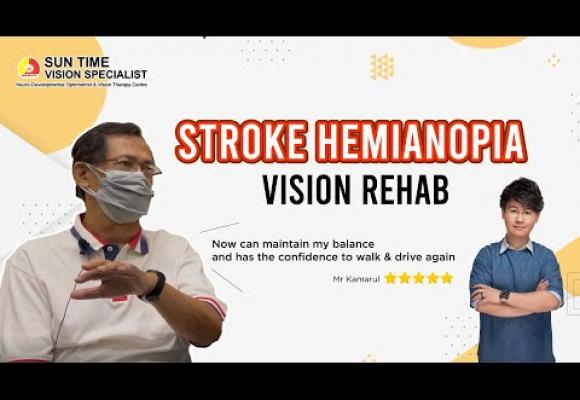What Is Neuro-Optometric Rehabilitation?
Neuro-Optometric Rehabilitation is a subspecialty of optometry that focuses on the variety of visual disorders that occur as a result of brain injuries, developmental delay or other neurological disorders.
Our eyes are closely linked to the brain. When someone suffers any type of injuries to the brain, whether it is a stroke, car accident, or developmental delay, their vision will be adversely affected.
When two eyes are misaligned, the brain struggles to combine two images into one single clear image. This condition is called binocular vision dysfunction (BVD) and it has been shown to trigger anxiety and panic attacks, it can caused by brain injuries
Anxiety from BVD can cause agoraphobia. Visually-busy environments can cause sensory load and as a result of panic attacks.
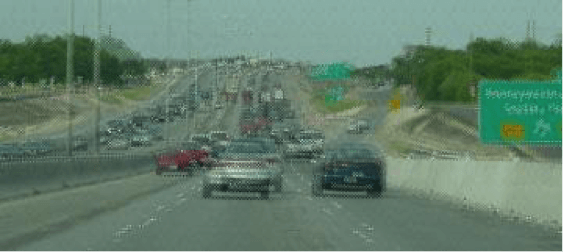
This is an example of what it can look like for someone who is trying to drive with double vision:
Double vision is a common occurrence after stroke or head injury. It is vital to treat double vision during the rehabilitation process, otherwise the overall rehabilitation will be significantly delayed. Double vision can cause problems that relate to:
- Hand-writing
- Anxiety with visual tasks
- Reach and grab inaccuracies
- Balance and movement difficulties like drifting when walking, stumbling or falling
- Driving difficulties with lane positioning, proper speed maintenance, multitasking, navigation
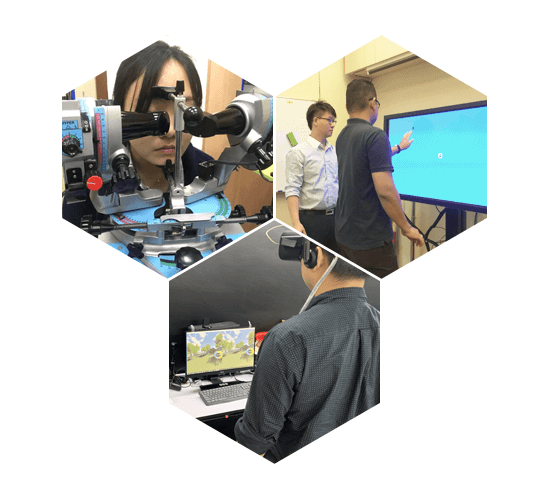
People who suffer from Acquired Brain Injury (ABI), Neuro-Developmental or Neuro-Degenerative Disorders commonly have various Functional Vision Problems leading to decreased performance of Activities of Daily Living (ADL’s). Sometimes when one suffers a head injury their sense of where the middle of their body is can change. This can cause:
- Dizziness or nausea
- Spatial disorientation
- Consistently stays to one side of hallway or room
- Bumps into objects when walking
- Poor walking or posture: leans back on heels, forward, or to one side when walking, standing or seated in a chair
- Perception of the floor being tilted
- Associated neuromotor difficulties with balance, coordination and posture
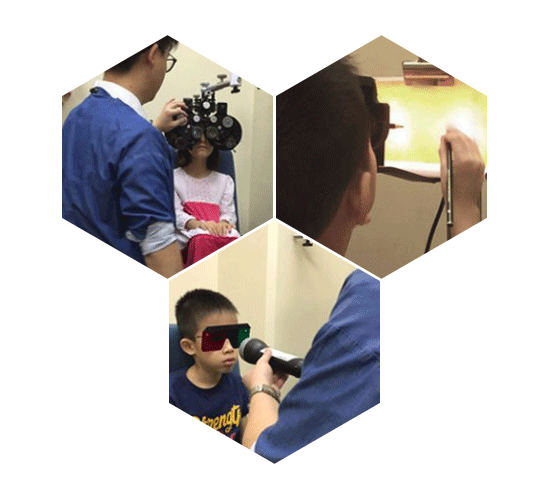
Vision problems associated with brain injuries can be disabling and increase dependency as well as risk of secondary injury unless treated. Treatment can involve special therapeutic lenses (worn similar to glasses) or may involve a more in-depth program. Neuro-optometric rehabilitation therapy is a non-invasive process for the rehabilitation of visual, perceptual, and motor disorders. Working one on one with our Vision Therapist or Behavioral and Developmental optometrist at Sun Time Vision Specialist , you will learn how to regain control of your vision.
The Neuro-Optometric Evaluation is unique because it is not only including the traditional eye exam, basic binocular visual skills, eye healthy test and other eye evaluations. The objective of this evaluation tests to determine how the visual process is interacting with other sensory feedback mechanisms. In addition, visual information processing skills that relate to vocational and avocational tasks are evaluated.
Optometry And Rehabilitation
Majority of healthcare professions, including those who works in head trauma rehabilitation centers, are not adequately aware of visual problems resulting from Traumatic Brain Injury and the visual-perception consequences. This creates a gap in rehabilitative services and further resulting an incomplete treatment for the patients. As a result, the vision care professionals play an important role in the rehabilitation. Through a Neuro Optometric Rehabilitation and vision therapy and the proper use of lenses, the specifically trained Behavioral & Neuro-developmental optometrists cooperate with Traumatic Brain Injury patients to help them in improving the flow and visual information processing.
Vision therapy and Neuro Optometric Rehabilitation is a very practical and effective therapy. After evaluation, examination and consultation, the problems of the patients can be diagnosed. The specifically designed treatment is prescribed to improve the patients’ visual system and increase their vision efficiency. This will then give the best improvement to the good vision of patients.
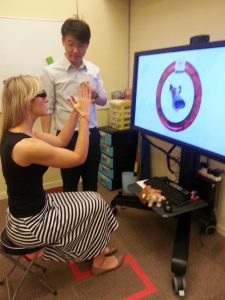
Good Visual Skills -- Good Vision
Good visual skills are necessary for efficient information processing. Even though visual information processing is a complicated process, ones does not feel tough as it is a subconscious activities. However, for someone who have a weak visual system or experience Traumatic Brain Injury, visual processing task will be very difficult for them and it may cause headache to the patients. The visual skills that will be affected by Traumatic Brain Injury include:
- Tracking: the ability of the eye to keep an eye on a moving object.
- Fixation: the ability of the eyes to locate and inspecting a series of stationary objects (words while reading) quickly and accurately.
- Focus Change: the ability of the eyes to look the near object and far object quickly without forming blur visual image.
- Depth perception: The ability of the eyes to judge the relative distances of objects - how far or near they are.
- Peripheral vision: monitoring and interpreting what is happening in the surrounding field of vision
- Binocularity: using both eyes together as a team - smoothly, equally and accurately.
- Maintaining attention: keeping focused on a particular activity while interference, such as noise, is present.
- Visualization: accurately picturing images in the "mind's eye," eye retaining and storing them for future recall.
- Near vision acuity: see clearly, inspect, identify and understand the objects viewed within the length of arm.
- Distance acuity: see clearly, inspect, identify and understand objects viewed at a distance.
- Vision perception: understanding what is seen.
Signs Of Post Trauma Vision Problems
Frequently Asked Questions
It is advisable to consult a neuro developmental vision specialist as soon as possible, even if the eye structure is healthy. Visual processing primarily occurs through the brain, and prompt consultation can aid in the recovery of vision and overall system. As vision can be direct and indirect affecting balance, dizziness etc.

